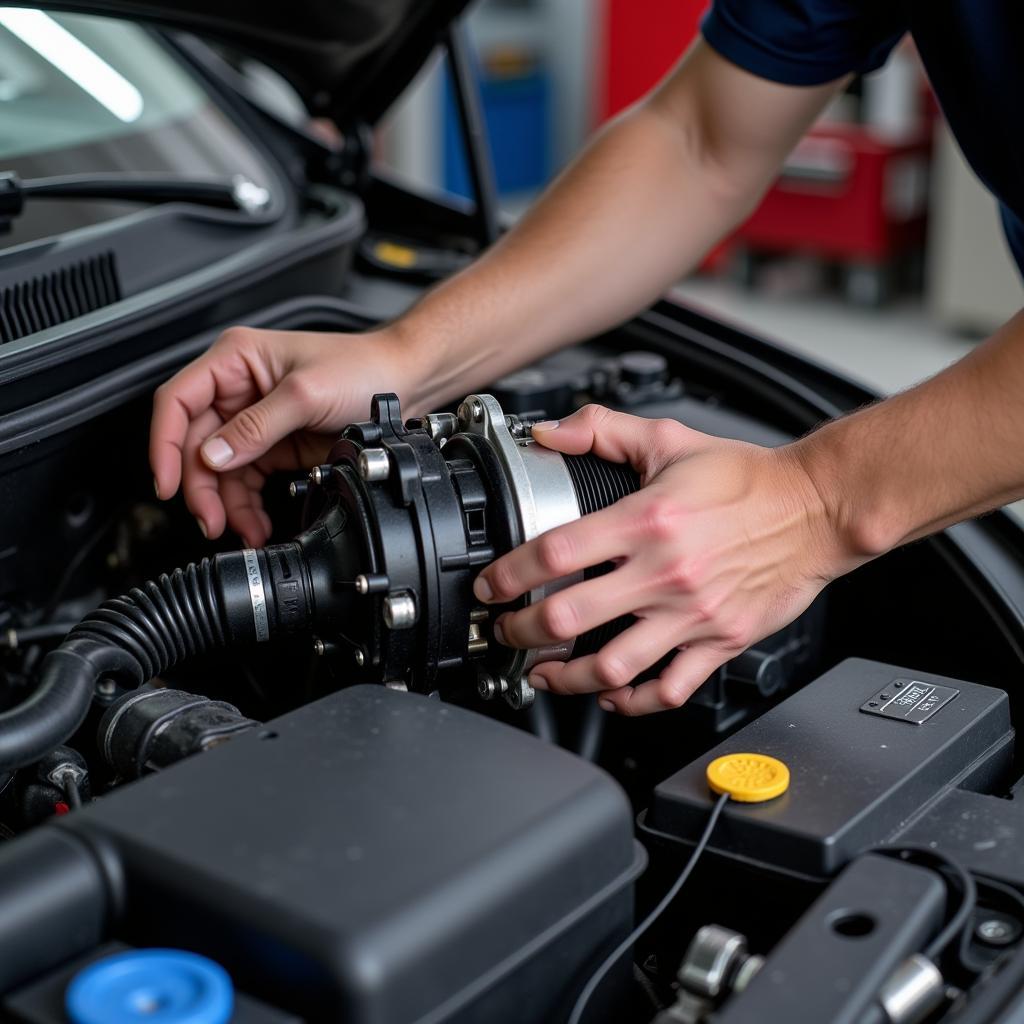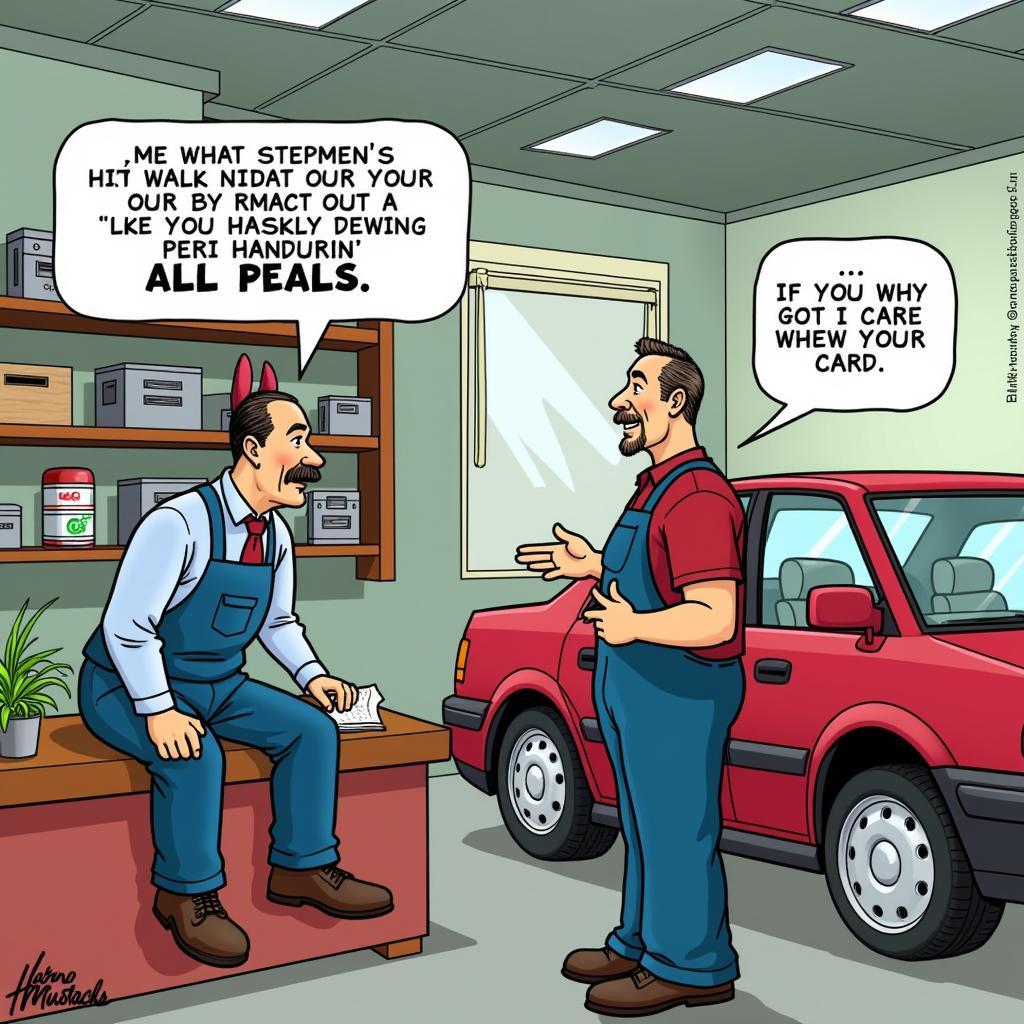Summer’s here, and you’re dreaming of cruising with the windows down, wind in your hair… then your car AC blows a gust of hot air in your face. Ugh. Suddenly, you’re sweating, irritable, and facing the dreaded question: how much is this going to cost me?
Don’t panic just yet. While getting your car’s AC fixed can feel like a significant expense, the actual cost can vary widely. Several factors come into play, from the specific problem to the type of car you drive. Let’s break down what affects the price and give you the information you need to get a cool (and fair) deal.
Why Knowing the “Why” Matters: Pinpointing the AC Problem
Before you can figure out how much a fix will cost, you need to know what’s broken. A simple recharge of the AC refrigerant is on the lower end of the price spectrum, while a busted compressor can put a serious dent in your wallet.
Here are some common car AC culprits:
- Refrigerant Leak: Over time, the refrigerant in your AC system can leak out, leading to poor cooling. This is a relatively common issue and is usually one of the more affordable fixes.
- Electrical Issues: Your car’s AC system relies on various electrical components, and a malfunctioning switch, sensor, or fuse can cause problems. Diagnosing electrical issues can sometimes be tricky, impacting labor costs.
- Condenser Problems: The condenser is responsible for cooling the refrigerant. If it’s damaged or blocked, your AC won’t work efficiently. Depending on the severity, this could require a repair or a complete replacement.
- Compressor Failure: The compressor is the heart of your AC system. If it fails, it’s the most expensive repair, often requiring a complete replacement.
 Car AC Compressor Repair
Car AC Compressor Repair
Decoding the Costs: What Impacts Your Final Bill?
Now that you have a general idea of potential problems let’s dive into the factors influencing the final cost of car AC repair:
- The Actual Problem: As we discussed earlier, a simple refrigerant recharge will be far less expensive than replacing a compressor.
- Make and Model of Your Car: Luxury or imported vehicles often have more expensive parts, impacting the overall repair cost.
- Labor Costs: Labor rates vary depending on your location and the mechanic’s experience. Dealerships often have higher labor rates than independent shops.
- Parts Availability: If a specific part needs to be ordered, it might take longer, and you might face higher costs if it’s rare or out of stock.
Ballpark Figures: Getting a General Idea of Car AC Repair Costs
While it’s impossible to give an exact quote without a proper diagnosis, here’s a general idea of average costs for common car AC repairs:
- Refrigerant Recharge: $100 – $300
- Orifice Tube Replacement: $150 – $350
- Condenser Replacement: $400 – $800
- Compressor Replacement: $600 – $1500+
Pro Tip from John Miller, Senior Automotive Technician at Autotippro: “Always ask for a detailed estimate before authorizing any work. This should outline the cost of parts, labor, and any other fees. Don’t be afraid to ask questions about the estimate to make sure you understand everything.”
 Reviewing Car AC Repair Estimate
Reviewing Car AC Repair Estimate
DIY or Call in the Pros?
While some minor car AC issues might seem DIY-friendly, it’s generally best to leave the repairs to the professionals. The AC system involves specialized tools, knowledge, and handling refrigerant safely.
Need AC fixed in car? Our team of experienced technicians can diagnose and repair any car AC problems you might have.
Keeping Your Cool Without Breaking the Bank: Tips for Saving Money on Car AC Repair
No one wants to be stuck with a hefty repair bill. Here are a few tips to keep in mind:
- Regular Maintenance is Key: Just like any other part of your car, regular maintenance can prevent costly AC repairs down the line. Get your AC system checked annually, ideally before summer.
- Shop Around for Quotes: Don’t settle for the first quote you receive. Get estimates from multiple mechanics or dealerships to compare prices.
- Consider Used or Remanufactured Parts: If you’re on a tight budget, ask your mechanic if they use used or remanufactured parts, which can be a more affordable option.
- Address Issues Early: Ignoring small problems can lead to bigger, more expensive repairs down the line. If you notice your AC isn’t working as efficiently as it used to, get it checked out sooner rather than later.
Car not blowing air fix is just one of the many services we offer at Autotippro.
Conclusion
Dealing with a broken car AC system is never fun, but understanding the factors that influence repair costs can help you make informed decisions. Remember to get a detailed estimate, ask questions, and address issues promptly to avoid being left in the heat.
Need help with your car’s AC system? Contact AutoTipPro at +1 (641) 206-8880 or visit our office at 500 N St Mary’s St, San Antonio, TX 78205, United States. Our team of experts is here to help you stay cool and comfortable on the road.
FAQ
Q: How often should I recharge my car AC?
A: Ideally, your car’s AC system shouldn’t need to be recharged frequently. However, if you notice your AC isn’t cooling as well as it used to, it might be a sign of a slow leak. A qualified technician can check your system and address any issues.
Q: Can I use a DIY AC recharge kit?
A: While DIY recharge kits are available, it’s generally recommended to have your AC system recharged by a professional. They have the right tools and knowledge to ensure the correct amount of refrigerant is added and to check for potential leaks.
How to fix car air conditioner for Kia Rio 2012 is one of the most frequently asked questions by Kia Rio owners.
Q: How can I tell if my car AC compressor is bad?
A: Some signs of a failing AC compressor include loud noises when the AC is on, warm air blowing from the vents, and a noticeable decrease in cooling performance. If you suspect your compressor is failing, have it inspected by a mechanic as soon as possible.
Fixing a car air conditioner requires specialized knowledge and tools.
Q: Can a dirty cabin air filter cause AC problems?
A: Yes, a dirty cabin air filter can restrict airflow, leading to reduced AC performance. It’s a good idea to have your cabin air filter replaced regularly, typically every 12,000 to 15,000 miles, or as recommended in your car’s owner’s manual.
How to fix stinky car ac is another common concern for many car owners.





Leave a Reply